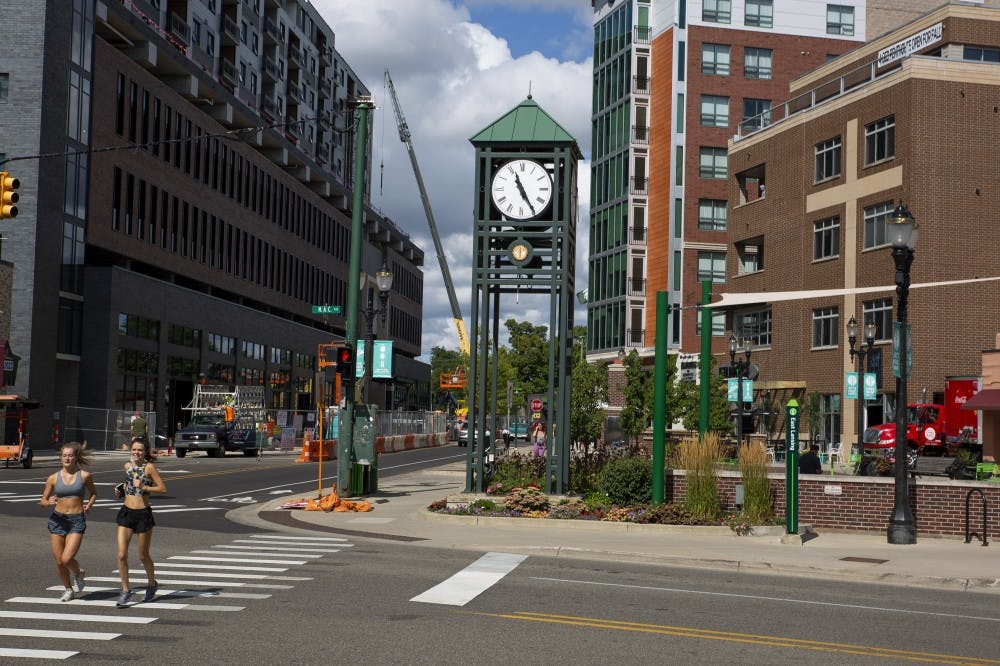Some economists are worried about future projections of growth following an executive order requiring many establishments to close or restrict public access.
The Centers for Disease Control and Prevention, or CDC recommendations on social distancing help limit the spread of COVID-19, and while it hasn't completely deterred people from visiting restaurants and bars, economists say business will inevitably slow because of the COVID-19 pandemic.
The effect on Michigan’s overall economy starts at the local college-town level, Michigan State economics professor Charley Ballard said.
“Restaurants and bars are a big part of the economy,” Ballard said. “The restaurants and bars here have already taken a hit with so many students leaving, so that takes away some traffic. But now, they’re going to have their traffic reduced 100%. That hurts.”
Whitmer's policy requires restaurants, bars, theaters, cinemas, indoor/outdoor performance venues, libraries, museums, gyms, casinos and other "places of public enjoyment" to close or restrict public access to carry-out, drive-thru or delivery until 11:59 p.m. March 30.
The order excludes grocery stores, healthcare facilities, crisis centers and secured food courts inside airports. There are 65 confirmed cases of COVID-19 in Michigan as of Tuesday.
While supporting Whitmer's decision, the Michigan Restaurant and Lodging Association, or MRLA is urging Whitmer to support businesses that will be affected by the closures.
“We recognize the Governor’s decision is for the health and well-being of all Michigan citizens, however, the restaurant and lodging industries will be decimated in the coming weeks, severely impacting the 600,000 people they employ,” MRLA said in a statement. “To that end, we call on the governor to immediately submit the necessary paperwork to qualify Michigan for the U.S. Small Business Administration (SBA) Economic Injury Disaster Loan program and to work quickly to infuse more liquidity for small businesses struggling to make payroll and keep their doors open.”
Whitmer formally requested the assistance March 18.
The severity of the effects of the closures on the economy will depend on how long the businesses remain closed, Ballard said.
“I think most economists now believe that the U.S. economy, the Michigan economy and the local economy are entering a recession,” Ballard said. “We don’t know how deep it will be because we don’t know how long these closures will have to last. We don’t know how long it will take to get the contagion under control.”
Ballard said that even after the executive order expires, some of the affected businesses may not be able to recover from the loss of revenue.
“If we can get this under control reasonably soon, those restaurants and bars will have suffered lost profits, but they will still be able to reopen when the time comes,” Ballard said. “But the longer this goes on, some of them may be forced into bankruptcy and may not be able to continue.”
On the individual level, Ballard said he encourages employees temporarily without work to apply for unemployment benefits, food assistance, and other federal assistance to make ends meet.
“I hope that we can get back to normal soon,” Ballard said. “For the economy in general, as for the individual, the longer it goes, the harder it gets. If you’re out of work for three weeks, most people can weather that. It’s hard. But if you’re out of work for three months, that’s that much more of a challenge.”
Editor's note: This story was updated at 1:18 p.m. to reflect Whitmer's actions related to the SBA loan program.
Support student media!
Please consider donating to The State News and help fund the future of journalism.
Discussion
Share and discuss “MSU economist: Coronavirus consequences start in college towns” on social media.









